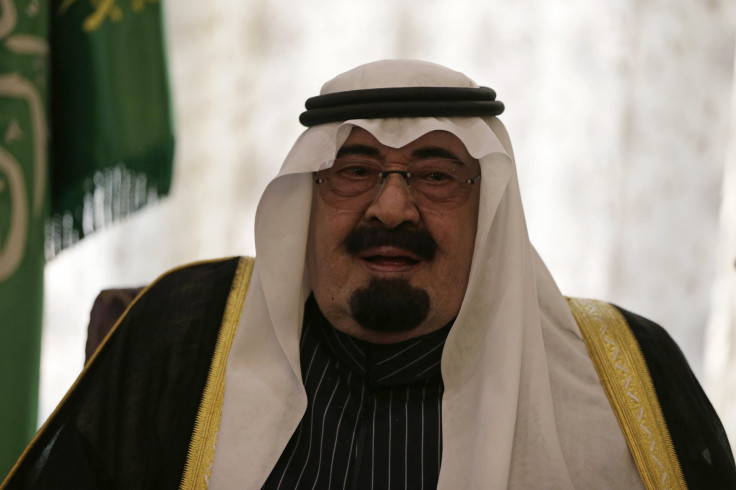Saudi King Abdullah's Illness Raises Questions About A Replacement, Stability Of Kingdom

Saudi Arabia's 90-year old King Abdullah bin Abdulaziz al Saud is battling pneumonia in a Riyadh hospital, raising the specter of a leadership change at a fraught time for the world's second-biggest oil producer. The king canceled his annual televised speech Tuesday, which Prince Salman bin Abdulaziz, the king's brother, read instead. Salman is next in line to take the throne, and if he does he will be faced with an encroaching insurgency by the Islamic State group, also known as ISIS, a volatile oil market and a proxy war with Iran in Iraq and Syria.
Salman, 79, has been the crown prince of Saudi Arabia since 2012 and the defense minister since 2011. He is the half brother of the king, who has been in the hospital since last week and needs a tube to help him breathe. The king still holds, despite his diminished condition, absolute power to enact laws and appoint ministers.
With news of the king's poor health, analysts have questioned whether the prince could maintain the country's stability if he becomes king. He has attended meetings domestically and internationally for the king for months and has experience in diplomatic relations.
As defense minister the prince has worked actively to keep extremist groups like ISIS from flourishing in the country. In June, the king fired the deputy defense minister because of a direct request from the prince, who reportedly did not agree with the deputy's views.
Still, some analysts have said that if the prince were to take over the throne, it could lead to slower decision making and leave the kingdom open to attacks by extremists.
Rachel Bronson, a Saudi watcher who is the senior fellow for global energy at the Chicago Council on Global Affairs, told NPR in an interview this week that Saudi Arabia is already "a very slow-moving state, so anything that slows down decision-making makes it harder for them to fight terrorism, increase liberalization, continue liberalization, which is necessary. "
This week, for the first time since ISIS formally announced last month its hope to conquer Saudi Arabia, government officials said terrorists had launched an attack on the border with Iraq. Four militants attacked a border fortification Monday, killing three border guards.
The country is also playing the main role in the oil market. The price of a barrel of crude, which was higher than $90 in January, fell under $55 in December, a five-year low. Saudi Arabia, which has the financial wherewithal to stomach low oil prices for far longer than other major oil producers, is using its control of oil prices to weaken rival nations, including its regional adversary, Iran.
The two neighbors have been sharply divided since the Islamist revolution in 1979 handed the government of Iran to a hardcore Shiite theocracy, directly opposed to Sunni Saudi Arabia. Today's declining oil prices and resulting loss of revenue for oil producers is far more consequential for Iran than it is Saudi Arabia.
Still, there is a chance that Salman, who became heir to the throne in 2012 after the death of Crown Prince Sultan, will not take over the throne. In 2007, the king formed the Allegiance Council to select the king and crown prince. According to the council's charter, the king must be a son or grandson of the founder of Saudi Arabia, King Abdulaziz Al-Saud. The rules also call for the crown prince to take over when the king passes away until the council can select a new monarch.
That means there is a chance that Salman might be passed over. Other lead contenders include Prince Mutaib, the king's son and current National Guard minister, and Prince Mohamed bin Naif, the incumbent interior minister.
© Copyright IBTimes 2025. All rights reserved.





















